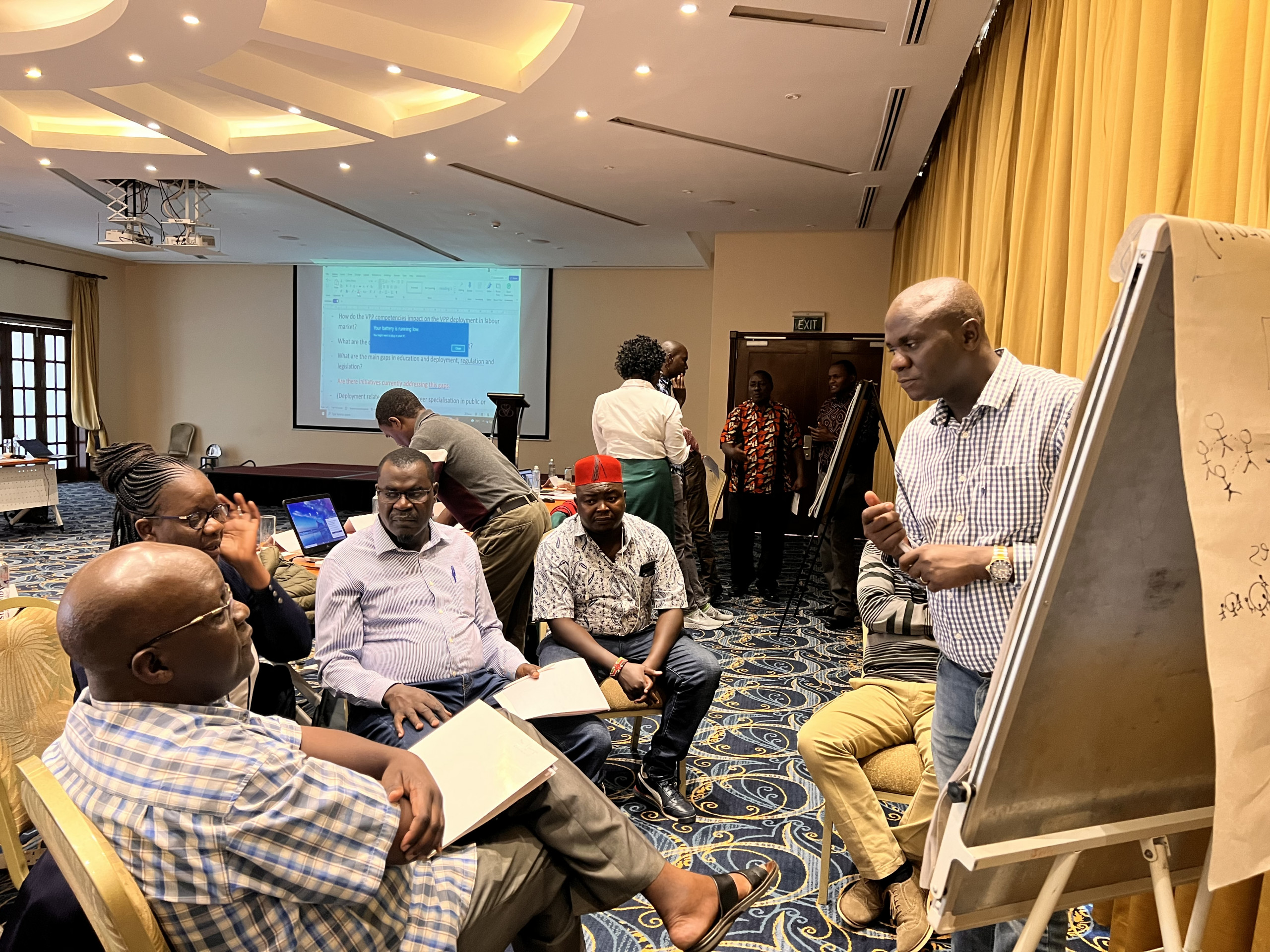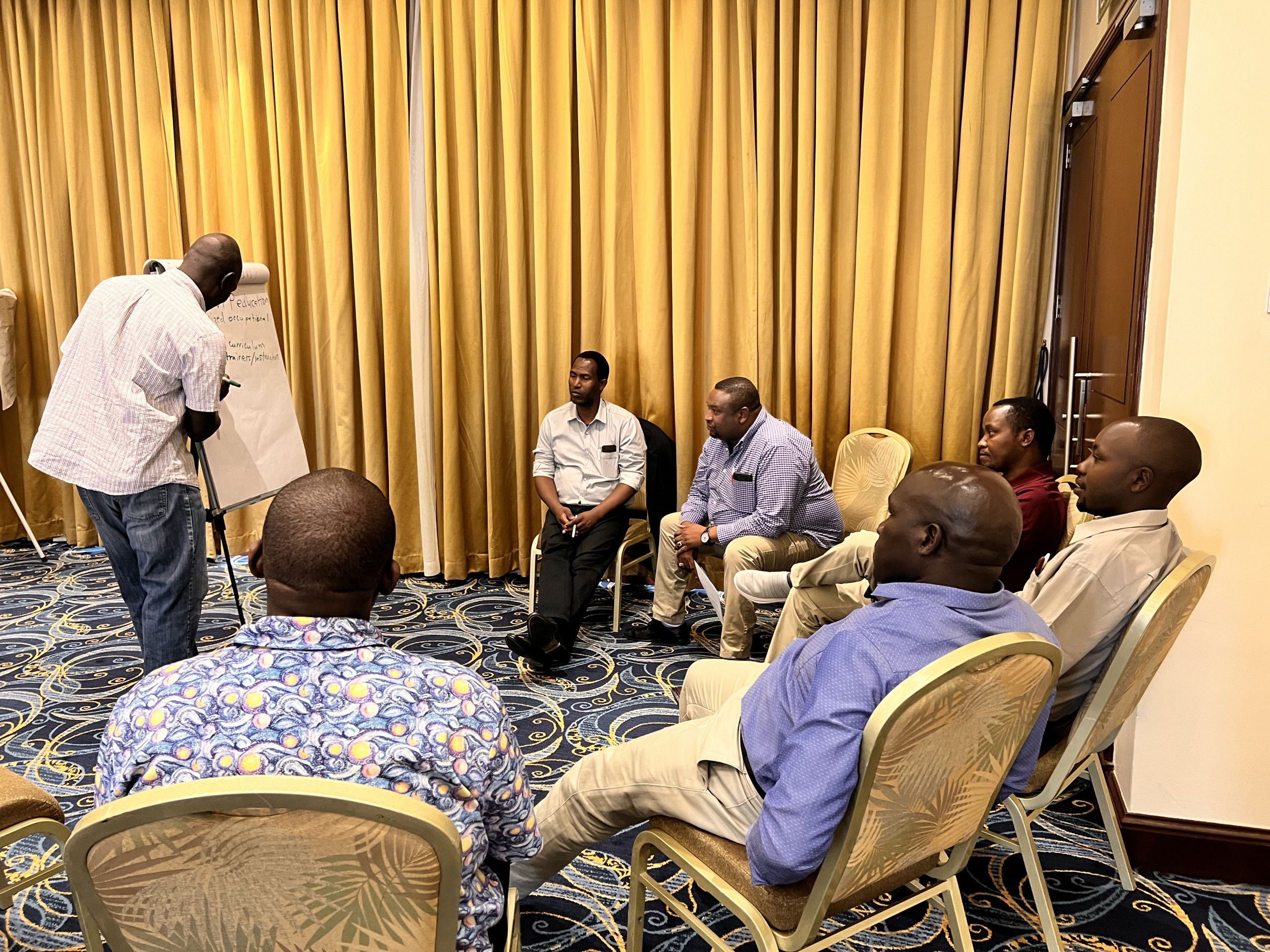


Stakeholders, active in the veterinary workforce in Kenya came together on 25 March 2022 in Nakuru, in an OIE-facilitated workshop held for awareness raising on OIE capacity building programmes and to discuss veterinary workforce development with regard to veterinary paraprofessionals.
The continued support for the integration of veterinary paraprofessionals (VPPs) is key to building the capacity and resilience of veterinary services in Africa, as identified in the inaugural continental conference for Veterinary Paraprofessionals in Pretoria, South Africa, in 2015.
VPP workforce development is a key part of the “Prevention and Control of Transboundary Animal Diseases for the benefit of smallholder farmers” (PCTAD) project, recently launched by the World Organisation for Animal Health in Eastern and Southern Africa, in collaboration with Veterinary Services and funded by the German Ministry for Economic Cooperation and Development (BMZ). The project entails support to OIE Member countries to develop their VPP workforce to ensure that VPPs are trained and equipped to provide quality veterinary service provision to rural and smallholder farmers. There is also a strong focus to enable the control and eradication of Peste des petits ruminants (PPR), a disease which affects small ruminants and has severe socio-economic impacts on the income of livestock farmers, particularly vulnerable rural communities, notably women.
Component : Veterinary workforce development – OIE – Africa
On day one of the workshop, more than 40 participants were introduced to OIE and support tools that help establish an enabling environment for VPPs, that include Performance of Veterinary Services (PVS), veterinary legislation and regulation; VPP education and veterinary workforce planning and assessments; the participants undertook a situational analysis of the VPP workforce in Kenya.
On the second day, a group of stakeholders who will be part of a VPP National Working Group were taken through a rigorous process of critically analysing various issues affecting the veterinary paraprofessional workforce in an effort to identify gaps in workforce development and map out ongoing workforce development interventions. The participants used the outcome of this exercise to develop a VPP National Action Plan.
Dr. Simon Kihu, Regional Programme officer (PPR and VPP) indicated that effective integration of VPPs into the workforce planning requires a supportive veterinary workforce framework.
Gaps in legislation, regulation, education and workforce development
The stakeholders recognised the advances and successes achieved so far in Kenya in legislation and training for VPPs, which include the recognition of VPP activities in veterinary legislation, as well as a coherent and organised training landscape for VPPs which includes certificate, diploma and Bachelor of Science qualifications. They also identified gaps in veterinary legislation, existing regulations and current VPP education. These included lack of differentiated categories of VPP based on qualifications, limited recognition of gender issues in the delivery of and accessibility of veterinary services, and challenges in the deployment of trained professionals in remote areas.
There was also a recognition of the potential role of harmonised occupational standards to guide VPP training in the future. It was noted that while progress has been made over the years, the veterinary profession and requirements of the veterinary industry and employers are constantly evolving, for example in terms of VPP proficiency in data science and digital technology, and training therefore has to continue evolving to keep up with changing needs.
Pictures (c) S. Fèvre (oie) 2022



Mr Queereenuse Pacho – Representative of the Kenya Veterinary Paraprofessional Association, during the meeting while he addressed the issue of quacks that have infiltrated the profession.
Workshop participants highlighted that gender inclusion in the veterinary workforce can be further addressed. There are multiple dimensions through which a gender perspective could be explored, keeping in mind that women livestock keepers are primary stakeholders affected by PPR. Opportunities for development include building on existing approaches to gender inclusion, such as the National Gender and Equality Commission Act (2011), and on affirmative action that is already in place to encourage applications to VPP traineeships by women. The PCTAD project can also work with stakeholders to integrate a gender analysis of the veterinary workforce to help identify barriers and opportunities to build gender inclusion in the veterinary workforce and in achieving PPR control.
The workshop had a wide range of stakeholders represented that included the veterinary profession in both the public and private sector, veterinary education regulatory bodies, the veterinary statutory body, veterinary paraprofessional training institutions, veterinary associations, research institutions, NGOs and Civil Society organisations working with the sector. The workshop was also characterised by a high level of learning and participation, high commitment to regulation, integration and education of VPPs and to PPR control and agreement by stakeholders to steer the project and address gaps which were identified in the enabling environment. Reference was made to other national workshops being held and the wider goal of the regional PCTAD project.



Dr. Mary-Theresa Agutu, Kenya Veterinary Board (KVB).
Participants highlighted that it was “interesting to bring together VPPs, veterinary surgeons, regulators, trainers and the industry” and that the workshop exchanges provided “diversity and depth of knowledge achieved through free, unhinged thinking”. The atmosphere at the workshop was very conducive to collaboration, allowing participants to express their motivation for working in this area.
The OIE will be working with other countries in the region on veterinary workforce development and rolling out a series of stakeholder events in the coming months.
More information about the OIE’s workforce development initiatives in Africa can be found here: Veterinary workforce development : what is it all about ? – OIE – Africa



Dr Joseph Omega, Lecturer at Eldoret University and former Kenya Veterinary Board Chairperson.
Picture (c) Lyne Iyadi (oie) 2022



